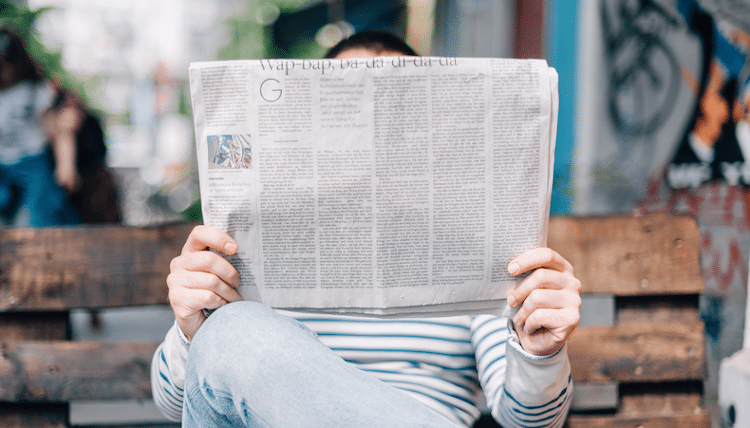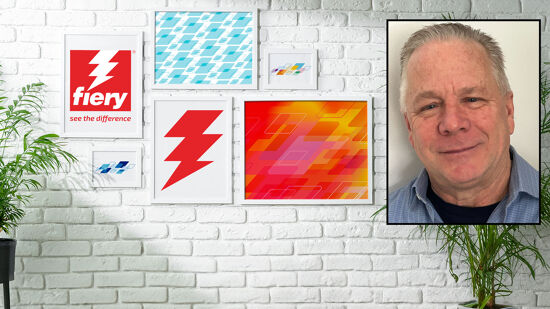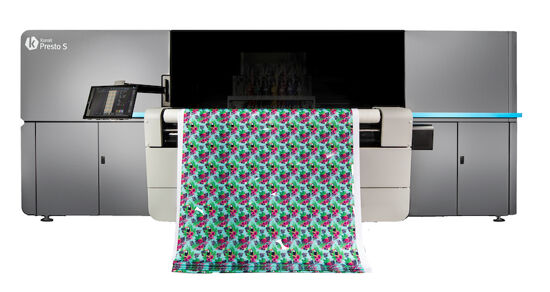Print and paper packs a punch in a digital world

The results of an international survey by Two Sides provides unique insight into how print and paper is viewed, preferred and trusted by consumers around the globe.
Carried out in June 2017, the survey contacted more than 10,700 consumers around the world, including more than 1000 in the UK and asked about a variety of topics including reading habits, trust in news, "digital overload", advertising preferences and the drive towards digital communications instead of paper-based ones.
Nationally representative surveys were undertaken in ten countries: Australia, Brazil, France, Germany, Italy, New Zealand, South Africa, Spain, the United Kingdom and the United States.
Key findings include that 72% prefer reading printed books and magazines; more than three-quarters think that fake news is a worrying trend; 60% still read a printed newspaper at least once a week; 69% think it important to switch off from electronic devices and enjoy print more; and 77% (88% in the UK) believe they should not be charged for receiving paper bills or statements.
Not only is there a global preference for print, there is also greater trust in print. 76% of all respondents believe “fake news” is a worrying trend and only 24% trust the news stories they read on social media. In addition, 63% of all respondents believe reading news in a printed newspaper provides a deep understanding of the story.
The survey also revealed consumers have a negative perception of online advertising. 68% of global respondents say they don’t pay attention to online ads and 62% find them annoying and usually not relevant. 57% of global respondents do their best to block or avoid online ads.
Despite the shift towards receiving digital communications, 89% of consumers believe they should have the right to choose how they receive communications (printed or electronically) from financial organizations and service providers, with a further 77% agreeing they should not be charged more for choosing paper bills and statements.
The common claims assisting this drive to digital, such as “Go Green - Go Paperless” and “Save Trees”, are creating consumer suspicion as 62% of global respondents believe the switch to digital is because the sender wants to save money, not because it is “better for the environment”.
Concerns about security and privacy were also evident. 71% are concerned their personal information held electronically is at risk of being hacked, stolen, lost or damaged and 73% keep paper copies of important documents at home for safety and security.
Overall, findings conclude that consumers trust, enjoy and gain a deeper understanding of information read in print, with signs of digital fatigue and concern for electronic information security and privacy evident.
Key findings from around the globe
Reading preferences
- France: 85% would rather read a book in print
- UK: 78% prefer printed magazines
- Germany: 75% prefer printed newspapers
- Australia: 63% prefer to shop with printed catalogues
- Brazil: 61% prefer their energy and utility bills in print
Reading habits
- Germany: 67% read a printed newspaper at least once a week
- U.S.: 63% read addressed advertising mail at least once a week
- Italy: 57% read a printed magazine at least once a week
- Spain: 56% read a printed book at least once a week
- Australia: 54% browse and shop for products using a printed catalogue weekly
- France: 35% never read marketing emails
Trusted news
- South Africa: 87% think fake news is a worrying trend
- France: 74% would be very concerned if printed newspapers were to disappear
- U.S.: 71% believe reading news in a printed newspaper provides a deep understanding of the story
- France: 62% trust the news stories in printed newspapers
- New Zealand: Only 17% trust the news stories they read on social media
Digital overload
- France: 79% think it’s important to “switch off” and enjoy printed books and magazines
- U.S.: 73% believe reading a printed magazine is more enjoyable than reading a magazine on an electronic device
- UK: 72% believe reading a printed book is more enjoyable than reading a book on an electronic device
- Brazil: 67% believe they spend too much time on electronic devices
- Spain: 60% are concerned the overuse of electronic devices could be damaging to their health
Advertising preferences
- UK: 78% don’t pay attention to most online ads
- Australia: 66% can’t remember the last time they willingly clicked an online ad
- Germany: 64% find online advertisements annoying and usually not relevant
- U.S.: 54% are more likely to take action after seeing an ad in a printed newspaper or magazine than if they saw the same ad online
The drive to digital
- South Africa: 93% believe they should have the right to choose how they receive communications from financial organizations and service providers
- UK: 84% believe if they choose to receive bills and statements electronically, they expect to have the option to go back to paper communication
- U.S.: 83% believe they should not be charged more for choosing paper bills or statements
- Spain: 79% are increasingly concerned their personal information held electronically is at risk of being hacked, stolen, lost or damaged
- France: 74% find it easier to track expenses and manage finances when it is printed on paper
The report is available here.
Topics
Interested in joining our community?
Enquire today about joining your local FESPA Association or FESPA Direct
Recent news
.png?width=550)
FESPA Middle East 2025 Overall Highlights
It has already been 2 weeks since we opened the doors on the 2nd edition of FESPA Middle East.

How will Fiery simplify print processes and enhance their user experience
In this podcast, Debbie McKeegan interviews Michael Chramtchenko, Chief of Staff, Sales and Marketing at Fiery, discussing the company's innovative software solutions for the print industry, particularly in garment decoration.

What is digital textile printing and what are the opportunities?
Nessan Cleary shares how textile printing covers a wide range of different market sectors which vary in opportunities. Nessan discusses sportswear, direct to garment and home décor.

Vote now for the FESPA Awards’ People’s Choice Award!
The voting for the prestigious People's Choice FESPA Award is now open until 7th February where those in the industry have the opportunity to vote for their favourite entries, celebrating the exceptional talent in the industry.